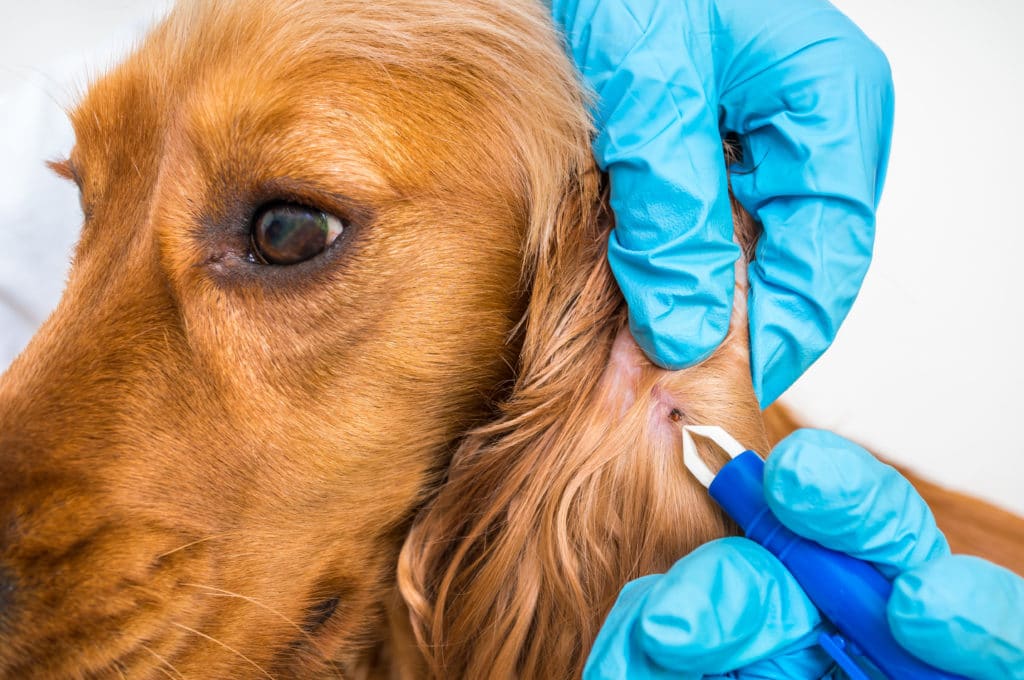-
×
Simply Country Twisted Pizzles, 6 ct
1 × $9.99 -
Boone Mini Chicken Dipped Rice Sticks, 4 ct - 4 ct
1 ×$1.99$0.00
Pet Health
Ask The Vet: Ticks 101
Tick season is here so we sat down with our favorite Vet Dr.Olaf Hansen about what pet-owners need to know about those pesky pests! So help your dog avoid ticks this summer!
Q: How can ticks get on my dog?
A: Ticks can attach themselves to your dog at almost any point when your dog is outside. They wait on tall grass, bushes or brush and wait for an animal to pass by that they can attach to. Then they find a comfortable spot to dig in to and bite the host animal and begin to suck blood.
Q: What risks do they pose to my dog?
A: A tick, of course, feeds off your dog’s blood which is of course not good, if your dog has a serious tick problem the blood loss could be a problem, though that isn’t very common. The larger threat is the diseases that they can carry. Lyme disease and rocky mountain spotted fever are two of the more serious diseases that a tick in the USA can transfer to your pet.
Q: Doesn’t flea prevention work on ticks too? Both are just bugs.
A: While many products that prevent fleas also prevent ticks, not all of them do. Obviously, it goes without saying that fleas and ticks have different biology. They are different animals and are susceptible to different pesticides and chemicals. So always check to see if the topical you are buying protects against both.
Q: How do I know if Ticks are a problem in my region?
A: Unfortunately they are found all across the USA, the brown dog tick can be found from coast to coast and the Deer Tick spreads across a lot of the USA as well. However people in some regions should be more cautious of ticks, our friends over at Leader Dogs For the Blind are based in Michigan which is in a region with heavy tick activity. Which is why they apply our products, which fight Ticks as well as fleas.
Q: How can I protect my dog?
A: The best defense is of course to use a topical that fights both fleas and ticks, like our Activate II. You can also minimize your dog’s potential exposure by limiting the amount of time they spend in densely wooded or grassy areas. The places ticks love to hide. Also if you aren’t using a topical, which you should be, you should check your dog regularly. If you find parasites on them then contact your vet about how best to remove them.
 Simply Country Twisted Pizzles, 6 ct
Simply Country Twisted Pizzles, 6 ct  Boone Mini Chicken Dipped Rice Sticks, 4 ct - 4 ct
Boone Mini Chicken Dipped Rice Sticks, 4 ct - 4 ct 
Olaf should stay in the coat!!
This is hilarious! I vote: Get Olaf out of the coat!”